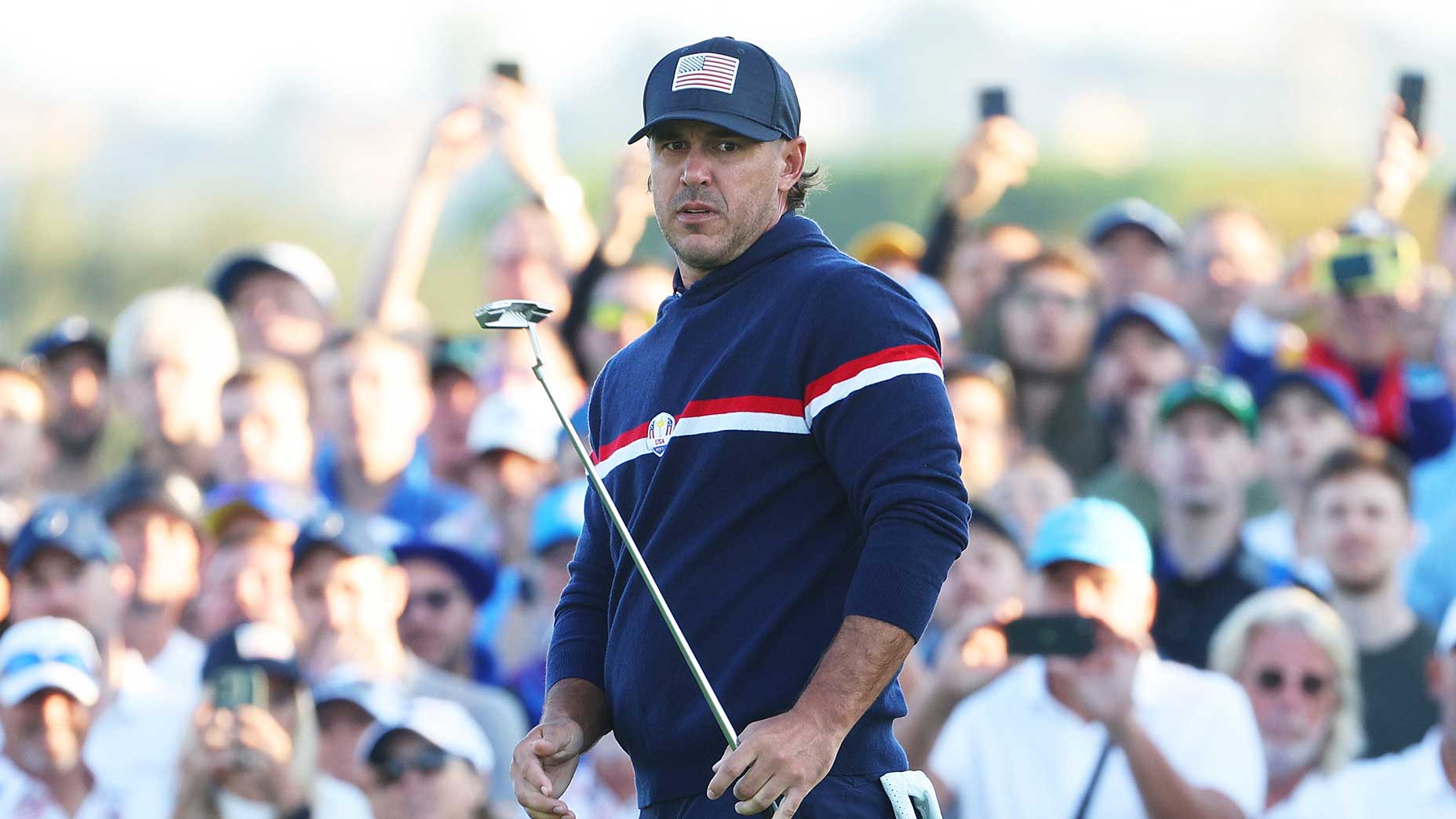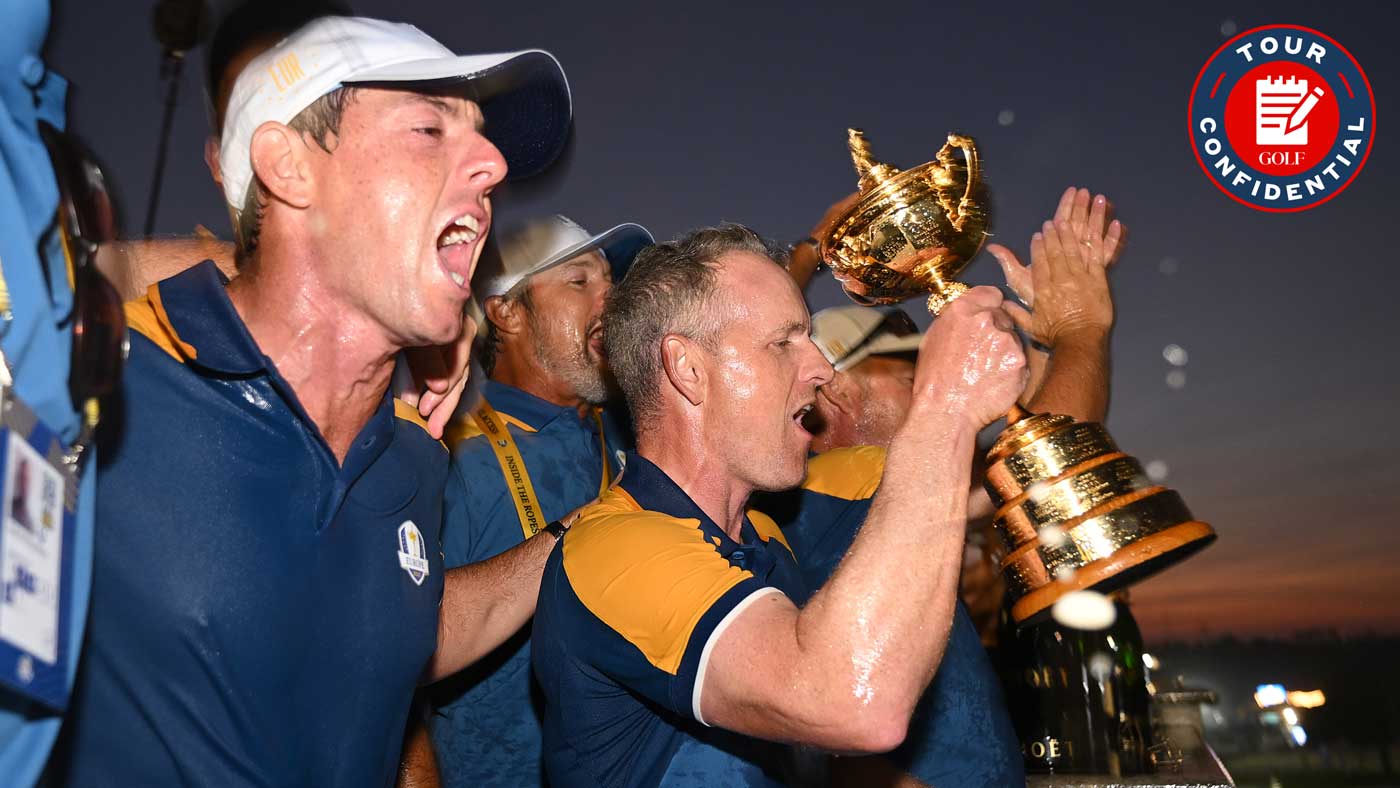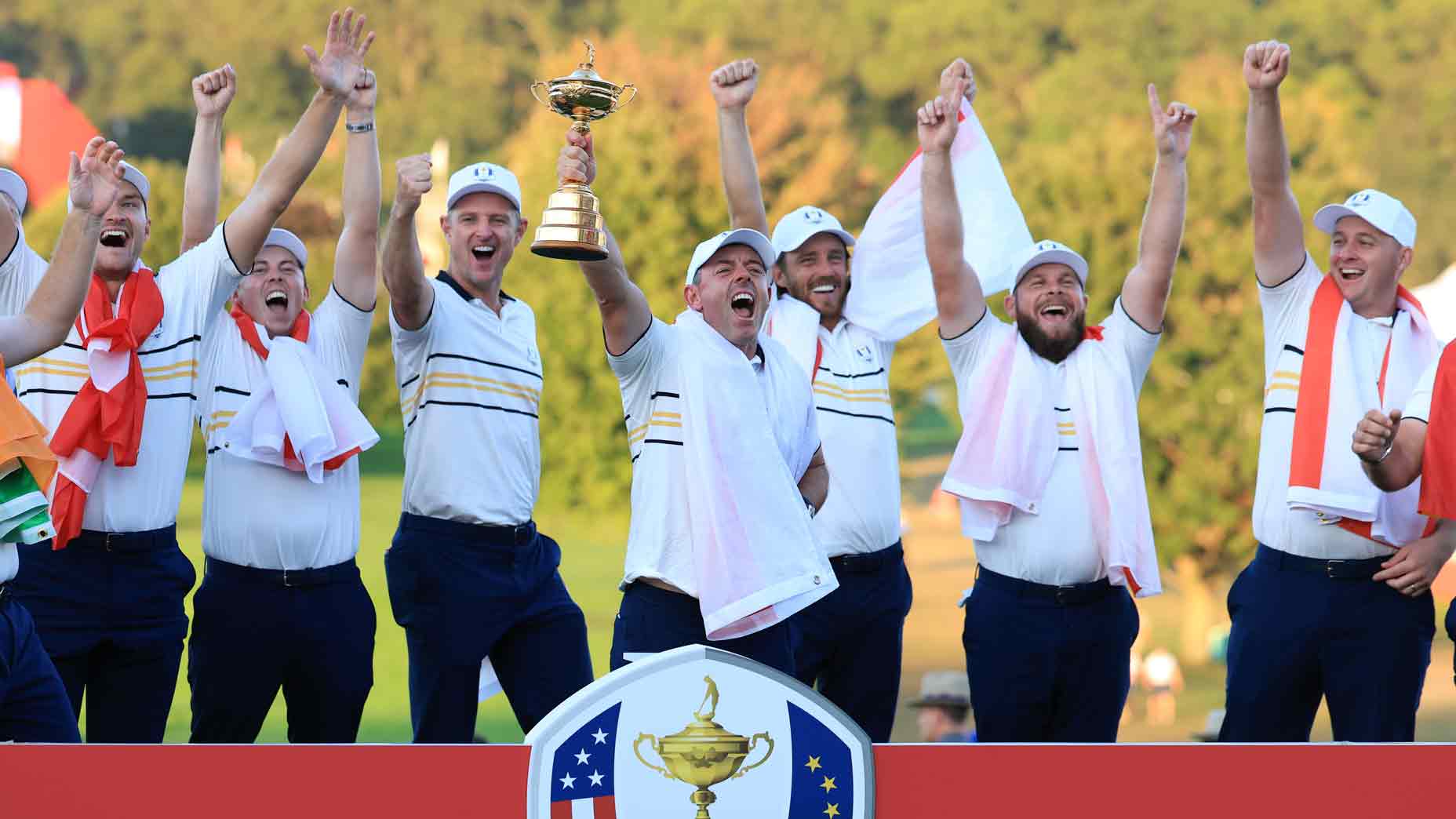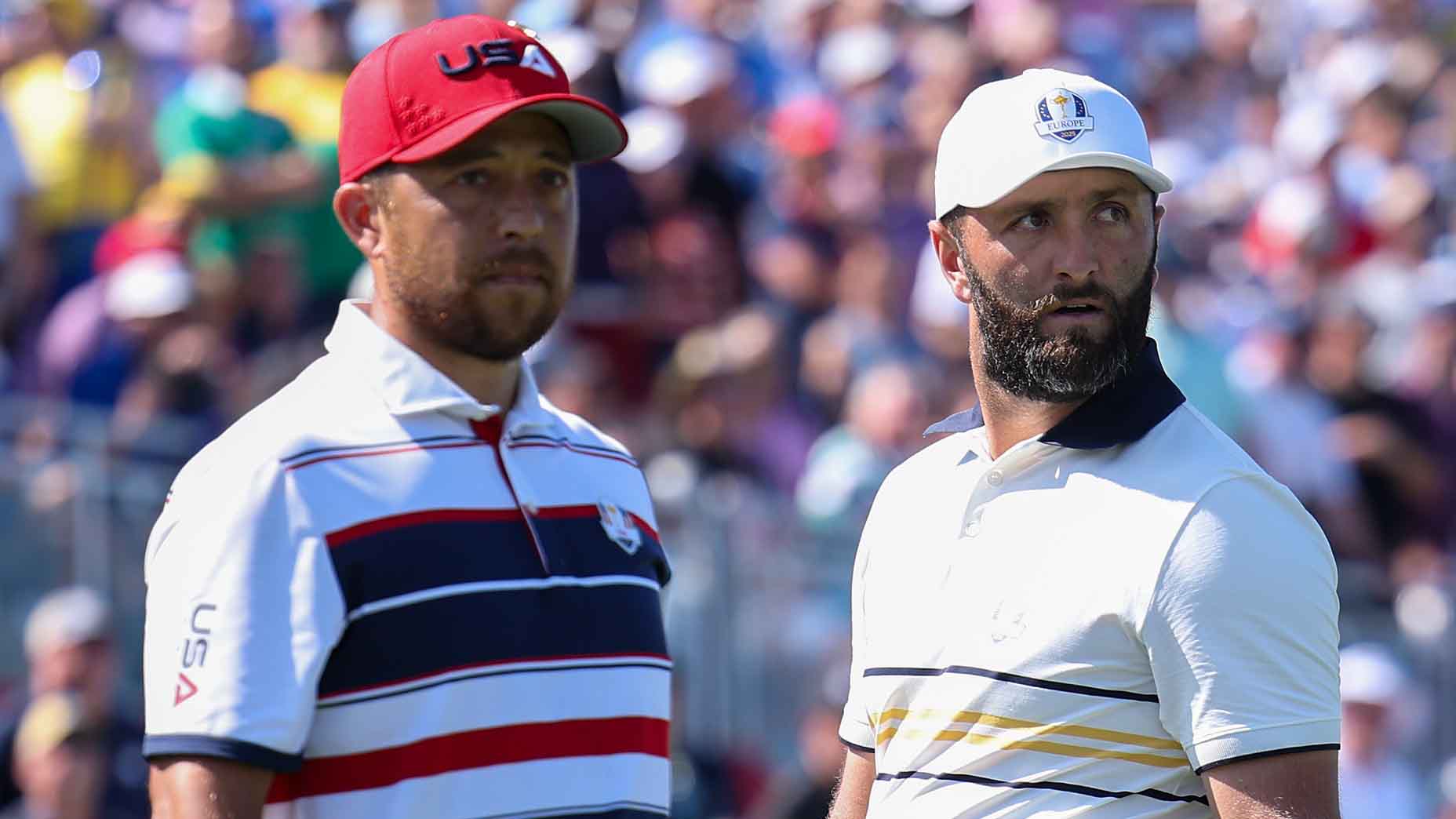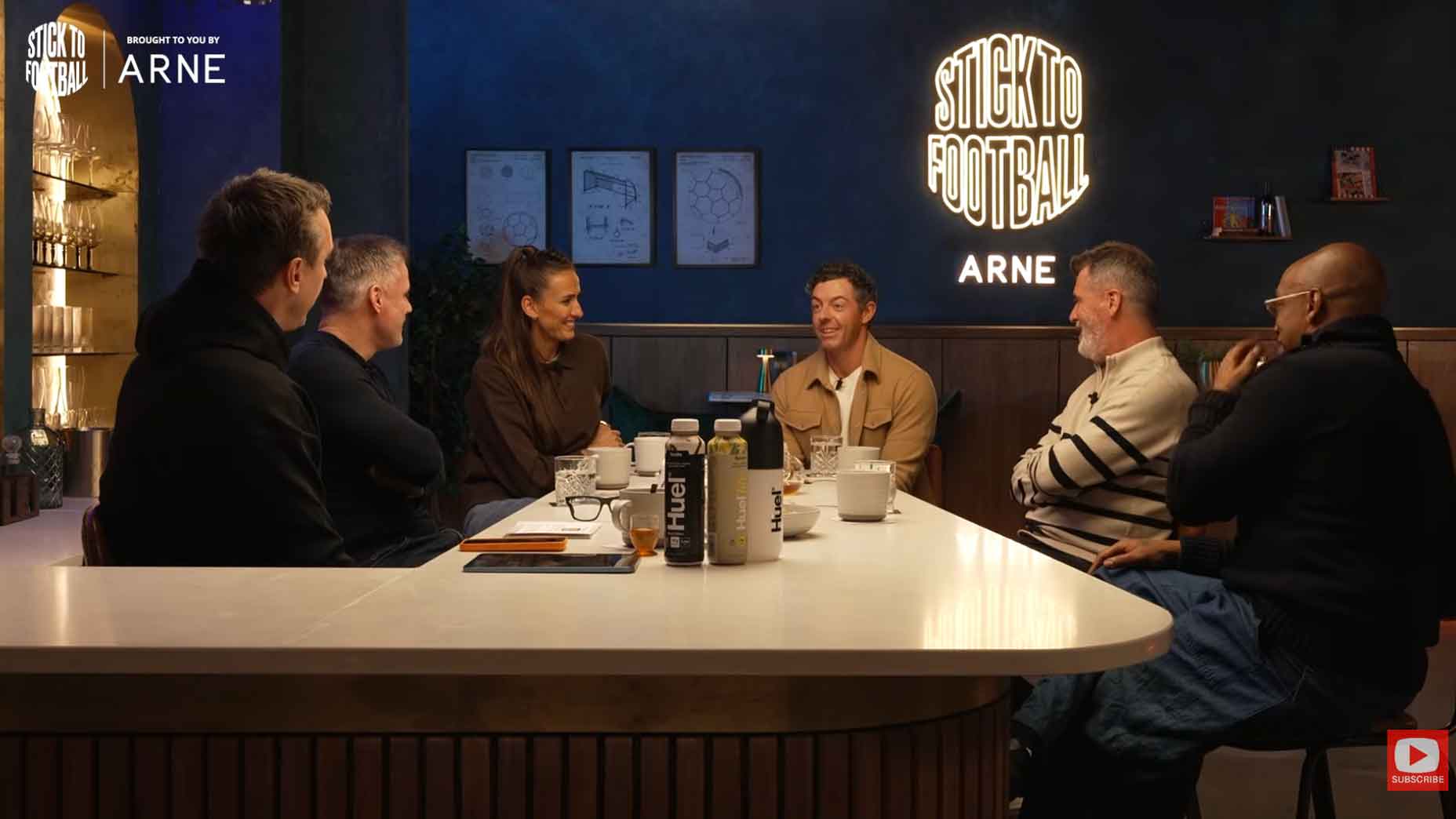Brooks Koepka speaks with a jock’s flat affect and strides the course like a bloodless Cyborg. He comes off as a player who could take or leave it all, allergic to theatrics, immune to emotions.
But don’t be fooled. The man does not mind drama. And as this week’s Ryder Cup reminded us, he has a special gift for stirring things up.
Signs that he was primed to draw attention to himself were clear before the competition started, when Koepka leaned into the role of confident outlier, the only LIV player to earn his way onto either 12-man roster.
“I had the same opportunity as the other LIV players,” he said when asked about the roadblocks his LIV peers faced. “And I’m here.”
If the others felt left out, shrug. So be it.
“Play better,” Koepka said. “That’s always the answer.”
This was classic Koepka: quietly cocky, cooly dismissive, in tones that suggested that not much was a big deal to him, anyway.
Not long after, Koepka doubled down on the casual smack talk when he said that “very few” of the players ready to do battle in Rome were equipped to handle full-blown Ryder Cup pressure in a decisive match coming down the stretch.
“False confidence,” Koepka called it.
Was he dissing his own teammates? Taking a swipe at the opposition? Whatever the case, this, too, was classic Koepka, throwing chum to the press by pumping himself up as he matter-of-factly put down others. Once more, he’d become a story before he’d struck a shot.
When Friday foursomes finally rolled around, Koepka didn’t have a chance to walk the talk. He sat out the opening morning sessions. But come Friday evening, he had more to say — not about himself but about Jon Rahm and Rahm’s demonstrative reactions to the ups-and-downs of the halved four-ball match they’d just played.
“So, yeah, I mean, I want to hit a board and pout just like Jon Rahm did,” said Koepka, after Rahm eagled the final hole to halve the match. “But you know, it is what it is. Act like a child. But we’re adults. Move on.”
Tour Confidential: Europe’s Ryder Cup secret, team MVPs, a curious hat controversyBy: GOLF Editors
He sounded like he wanted to stay above the fray, even as he dived headlong into it.
Rahm, for his part, did not engage. Koepka’s comment, he said, must have been a reference to his “letting out frustration” by slapping a board after leaving a putt short on the 17th hole.
“If Brooks thinks that’s childish, it is what it is,” Rahm said. “He’s entitled to think what he thinks.”
By that point, the competition looked like it was men against boys. The Europeans led 6.5-1.5. Presented with a chance to help close that gap the following morning, Koepka instead found himself on the wrong end of a headline-grabbing loss, as he and Scheffler suffered a 9-and-7 foursomes thrashing from Ludvig Aberg and Viktor Hovland. It was the most lopsided beatdown in the history of Ryder Cup partner play. Both Americans were benched that afternoon.
As Saturday wore on, cameras caught up with Scheffler, sitting on the sidelines beside his wife, weeping in frustration. If Koepka was around, he wasn’t easy to spot.
In fairness, he has never been a rah-rah guy. As at past Ryder Cups, Koepka spoke abstractly this week about camaraderie and bonding, but he always seems as much a lone wolf as he does an alpha male. His is, at any rate, not the first guy you envision when you picture group-flag waving or Champagne celebrations.
Maybe that helps explain his Ryder Cup record. Entering this week, Koepka was 6-5-1 in three prior Ryder Cup appearances, but he’d never lost in singles. On Sunday, he continued that solo streak, dispatching Aberg 3 and 2 in a match he led from the opening hole. By the time he closed it, the Ryder Cup itself was all but over. Koepka had played three matches, winning one, losing one, and tying another. But if he’d had little impact on the outcome, he’d left a vivid mark on the event.
“I mean, there’s got to be a winner and there’s got to be a loser,” Koepka said, as home-team celebrations spread across the grounds of Marco Simone Golf Club. “All you can do is give it your all and see where it takes you.”
Somewhere, a jet was waiting. Koepka sounded ready to be taken somewhere else.
